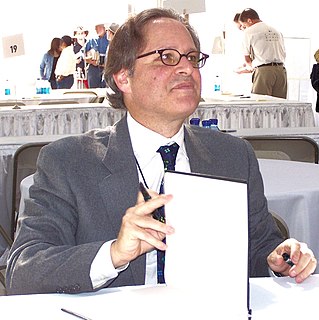A Quote by Michel Foucault
To punish is the most difficult thing there is. A society such as ours needs to question every aspect of punishment as it is practiced everywhere: in the army, the schools, the factories.
Related Quotes
The question is, does the punishment fit the crime? So we're not saying that we shouldn't punish people. We're not talking about a society that tolerates lawlessness. We should be very tough on people who are perpetuating violent crimes, for example. But we should make sure that it's tailored and not arbitrary.
A global society is coming into being, a global society that is made out of information that was not intended to be ours, but is ours, by the mistaken invention of computers and the printing press, information is power, and information has spilled by the clumsy hands of the dominator culture so that the information is everywhere, never before has the situation been so fluid, we might be able to finally have a crack at this
In using the strong hand, as now compelled to do, the government has a difficult duty to perform. At the very best, it will by turns do both too little and too much. It can properly have no motive of revenge, no purpose to punish merely for punishment's sake. While we must, by all available means, prevent the overthrow of the government, we should avoid planting and cultivating too many thorns in the bosom of society.
I think the other side of this is in this balance between the social state and the punishing state, remember, the social state has been decimated. And the question becomes, how is finance capital, how does the 1 percent now resort to governing? And they govern basically through a form of lawlessness and what I call the punishing state, in which we've had a punishment creep, and now it moves from the prison to almost every institution in society, from airports to schools to social services.
Letting things slide is always the easiest thing to do, in parenting no less than in banking, public education, and environmental protection. A lack of discipline is apparent these days in just about every aspect of American society. Why? This should be is a much larger question, one to ponder as we take out the garbage and tie our kids' shoes.
On the Continent, every attempt to substitute a lighter punishment for death was fiercely denounced as a direct violation of the Divine law. Indeed, some persons went so far as to question the lawfulness of strangling the witch before she was burnt. Her crime, they said, was treason against the Almighty, and therefore to punish it by any but the most agonizing deaths was an act of disrespect to Him. Besides, the penalty in the Levitical code was stoning, and stoning had been pronounced by the Jewish theologians to be a still more painful death than the stake.
One of the most consistent findings about low performing schools and students is that "home variables" (parental income and education, etc.) are more predictive than "school variables." But, having said that, we as a society can have much more effect on the school variables than on the home variables, so it's important and valuable to focus on the question of which interventions in schools are most effective and which are least effective.
In your deliberations, when seeking to determine the military conditions, let them be made the basis of a comparison, in this wise: which of the two generals has the most ability? on which side is Discipline most rigorously enforced? which army is stronger? on which side are the officers and men more highly trained? in which army is there the greater constancy both in reward and punishment?
When I was in Wuhan, I went to the art school, which was one of the most important art schools in China, an enormous art school. One of the things that I saw is that the schools are very big and there are so many students. It is very difficult to me to teach creative activity to great numbers of people, because I think you need personal contact with students, you need to speak individually, you need individual contact between teachers and students, you need continuity. To me this is a problem in mass education in every society now.








































